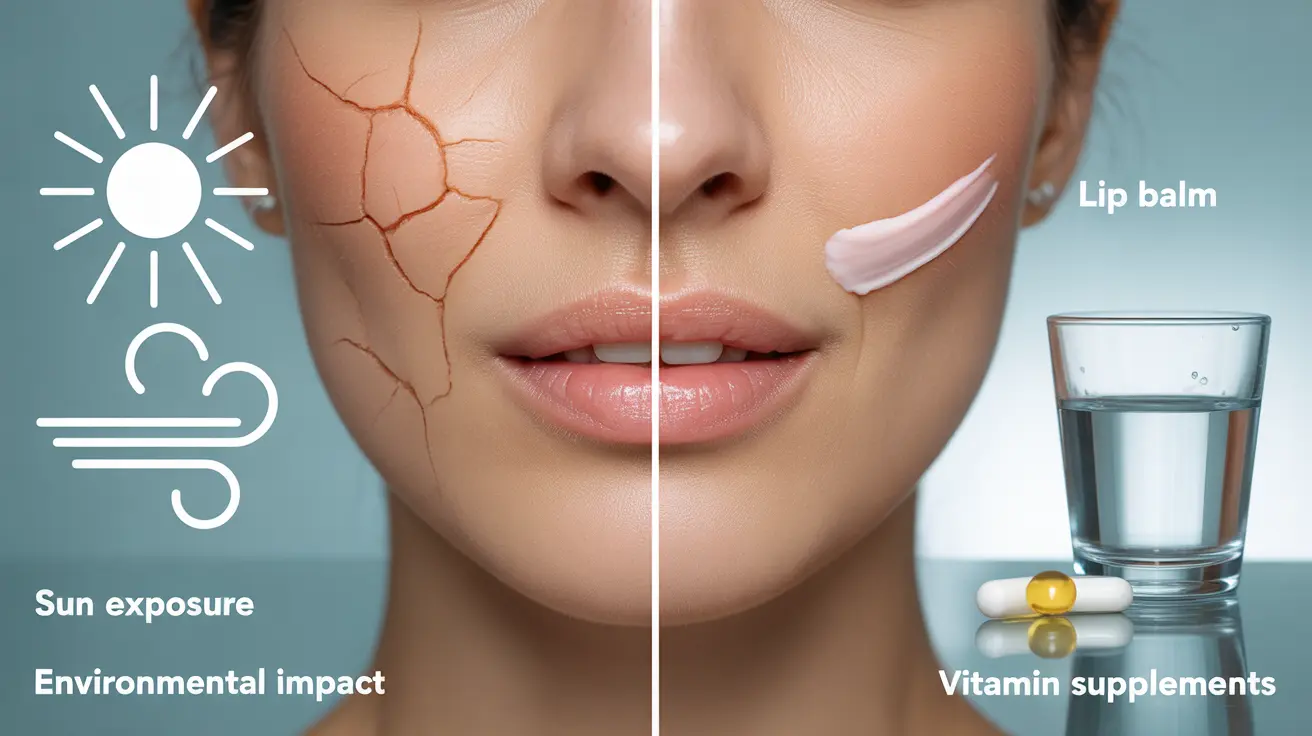Experiencing persistently dry lips can be both uncomfortable and concerning, especially when it seems to occur regardless of how well-hydrated you stay. While occasional lip dryness is common, chronic dry lips might signal underlying issues that require attention. Understanding the various causes and effective solutions can help you address this persistent problem.
In this comprehensive guide, we'll explore the multiple factors that contribute to dry lips, proven treatment methods, and important warning signs that indicate when medical attention might be necessary.
Common Causes of Chronic Dry Lips
Dry lips can result from various factors beyond simple dehydration or weather conditions. Understanding these underlying causes is crucial for effective treatment:
Environmental Factors
While weather is a well-known culprit, other environmental elements can significantly impact lip health:
- Indoor heating and air conditioning
- Low humidity environments
- Sun exposure and UV damage
- Wind exposure
- Excessive air pollution
Medical and Nutritional Factors
Several internal factors can contribute to persistently dry lips:
- Vitamin B deficiency
- Iron deficiency
- Zinc deficiency
- Certain autoimmune conditions
- Allergic reactions
- Dehydration despite regular water intake
Treatment and Prevention Strategies
Immediate Relief Methods
To address current lip dryness, consider these effective solutions:
- Use lip balms with natural moisturizing ingredients
- Apply petroleum jelly before bedtime
- Stay hydrated throughout the day
- Use a humidifier in your bedroom
- Avoid licking your lips
Long-term Prevention
Implement these strategies to prevent future episodes of dry lips:
- Choose non-irritating lip products
- Protect lips from sun exposure with SPF
- Maintain proper indoor humidity levels
- Address any vitamin deficiencies through diet or supplements
- Stay consistent with lip care routine
When to Consult a Healthcare Provider
While most cases of dry lips can be managed at home, certain symptoms warrant medical attention:
- Severe cracking or bleeding
- Persistent dryness despite consistent treatment
- Unusual changes in lip color or texture
- Development of sores or lesions
- Associated symptoms like swelling or pain
Frequently Asked Questions
Why are my lips so dry even though I drink water regularly?
While hydration is important, dry lips can persist due to factors like environmental conditions, vitamin deficiencies, or medical conditions. Internal hydration alone may not be sufficient if external factors are causing moisture loss or if there are underlying nutritional deficiencies.
What causes chronic dry and chapped lips besides weather?
Chronic dry lips can be caused by vitamin deficiencies, particularly B vitamins and iron, certain medications, autoimmune conditions, allergic reactions, and habitual lip licking. Indoor environmental factors like low humidity and artificial heating/cooling can also contribute significantly.
How can I treat and prevent dry lips at home effectively?
Use moisture-locking lip balms, apply petroleum jelly at night, maintain proper humidity levels with a humidifier, avoid lip licking, and protect lips from sun exposure. Additionally, ensure adequate intake of essential nutrients through diet or supplements.
Could certain medications or vitamin deficiencies be making my lips dry?
Yes, medications like retinoids, antihistamines, and some blood pressure medications can cause dry lips. Deficiencies in B vitamins, iron, and zinc can also contribute to chronic lip dryness. Consult your healthcare provider if you suspect medication-related dryness.
When should I see a doctor for persistent or severe dry lips?
Seek medical attention if you experience severe cracking or bleeding, persistent dryness despite proper care, unusual changes in lip appearance, development of sores, or if dry lips are accompanied by other concerning symptoms. These could indicate underlying health conditions requiring professional treatment.




